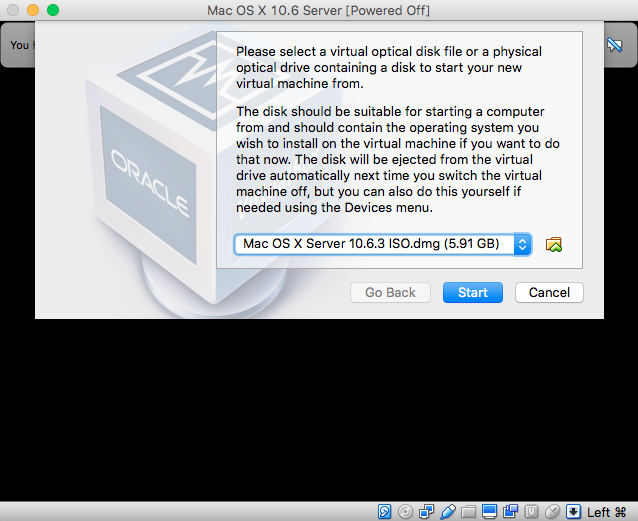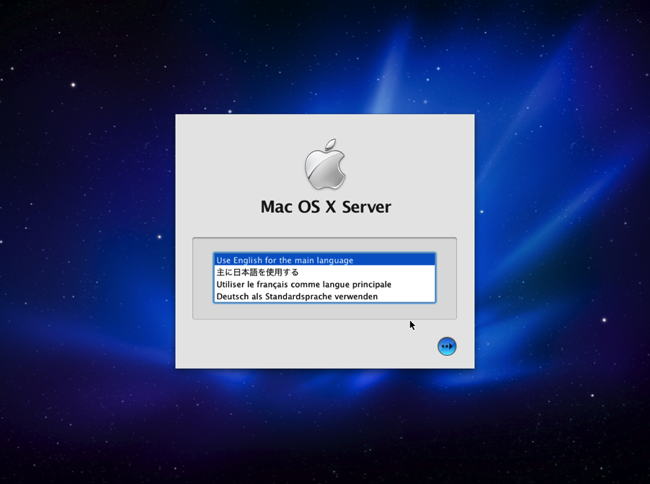Macs have had networking since the “Fat Mac” shipped in late 1984, but over the years Apple has changed the file sharing system, so not all Macs can share files with each other. This article provides a brief overview of which Macs can share files based on the system software they are running.
Jun 26, 2009 Podcast Producer: A Mac with an Intel processor running Mac OS X Server v.10.5, 1GB of RAM plus 512MB of RAM per core and a Quartz Extreme-enabled video chipset. For optimal performance, an Xsan clustered file services is recommended.
- Mac OS X Server Leopard Unlimited Client Edition - (v. 10.5) - box pack (upgrade) - 1 server, unlimited clients overview and full product specs on CNET.
- Download Mac OS X 10.5 Leopard. Download Mac OS X 10.4 Tiger Server More info. Download Mac OS X 10.5 Leopard. Download Mac OS X 10.5 Leopard Server More info.
- Sep 18, 2020 The same is true as specified in the Mac OS X Server 10.5 EULA; virtualisation is allowed on Apple hardware. Parallels Desktop officially supports Mac OS X Server 10.5.x which can be found within the online help under the topic 'Supported Guest Operating Systems'.
This information is distilled from Classic Mac Networking, which goes into much greater depth in covering these issues. Except for the earliest Macs with no Ethernet support, these assume Ethernet networking, and newer Macs also support file sharing over WiFi.
The Earliest Macs
Macs running System 3.3 with Finder 5.4 (the Mac 512K and 512Ke) through System 5.1 can connect to AppleShare File Server (ASFS) 2.0.1-4* and Personal File Sharing in System 7 through 9.2.2 as well as to Mac OS X 10.1** through 10.2.8 Jaguar. Networking is only possible using LocalTalk, AppleShare WS (for workstation) 1.1 must be installed on the client Macs, and you need to use a LocalTalk Gateway to connect to an Ethernet network, which requires a Mac with both Ethernet and Mac serial ports like those in the photo.
Macs running System 6 and 7.0-7.5.2 with AppleShare WS 3.5 installed can also connect to ASFS 2.0.1 and higher as well as Personal File Sharing in System 7 through 9.2.2 and OS X 10.1 through 10.2.8.
The Take-Away: Mac OS X 10.2.8 is a solid option if you need to connect Macs running System 3.3 through 7.5.2. If you’re a Classic Mac OS fan, Mac OS 9.2.2 is another good choice.
Classic Mac OS 7.5.3 and Later
Macs running System 7.5.3 to 7.6.1 can connect to ASFS 2.0.1 and later as well as Personal File Sharing in System 7 and later. These are the oldest Mac OS versions that can access shared files on Mac OS X 10.3 Panther and 10.4 Tiger.
Mac OS 8.1 through 8.6 support all the same connections as 7.5.3-7.6.1 and can also access Mac OS X 10.5 Leopard using Guest access only.
Mac OS 9.0 to 9.2.2 support all the same connections but do not require using Guest access on OS X Leopard.


The Take-Away: If you don’t need Macs with System 3.3 through 7.5.2, both OS X 10.3 and 10.4 are solid options. If you need to support all versions of the Classic Mac OS since 3.3, OS X 10.2 is your best bet.
Mac OS X
Yosemite was the latest version of Mac OS X when the Classic Mac Networking article was last updated.

Mac OS X 10.1 through 10.2.8 can connect to Personal File Sharing in System 7 through 9.2.2 as well as Mac OS X versions up to 10.10 Yosemite.
Mac OS X 10.3 Panther supports the same connections plus AppleShare Server 3 and newer.
Mac OS X 10.4, 10.5, and 10.6 Snow Leopard require Mac OS 9.0 or later or AppleShare IP 5 or 6; they cannot connect to older versions of the Classic Mac OS. They are also compatible with OS X versions up to 10.10.
Mac OS X 10.7 Lion, 10.8 Mountain Lion, 10.9 Mavericks, and 10.10 Yosemite can only connect to Macs running a version of Mac OS X; they cannot connect to file sharing on any Mac running the Classic Mac OS.
The Take-Away: All versions of Mac OS X from 10.1 through 10.10 can communicate with each other (and likely newer versions as well). OS X 10.2.8 on your server would give you coverage of the entire Mac spectrum of Macs with networking. OS X 10.3 is a bit faster and still has pretty low hardware requirements. OS X 10.4 supports almost every Mac with a G3 CPU, making it a great way to use some legacy hardware as a server.
Maximum Throughput, Maximum Capacity
For the best throughput, pick a Mac with gigabit ethernet as your file server. 10Base-T was good in its day, 100Base-TX was very nice, but if moving files as quickly as possible matters – especially big files – that’s why you want to look into gigabit. The dual-processor Mystic Power Mac G4 was the first to support gigabit ethernet, making it a reasonably priced choice, and the second CPU really makes a difference with Mac OS X.
If you want to set up a shared volume for Time Machine backups, you need to be running Mac OS X 10.5 or later. This could be a good place to use a Power Mac G5, as they accept readily available SATA drives, and 3.5″ SATA drives provide a lot of storage for the money.
Keep in mind that PowerPC Macs cannot use hard drives over 16 TB capacity, depending on the OS X version. This is a limitation of the Apple Partition Map. If you need bigger drives on your server, you’ll have to go Intel – and most 2006 Core Duo Macs can be had quite inexpensively these days.
If you have an Intel-based Mac as your server, OS X 10.6 Snow Leopard is a good choice, and it will even run on those early-to-mid 2006 Macs with Core Duo CPUs, which could make for a very inexpensive server. We recommend 2 GB of system memory in Core Duo Macs, the most they support and the least that can unleash Snow Leopard’s potential.
Other Platforms

If you want to connect your Macs to Windows, Linux, or other networking protocols, all of that is covered in Classic Mac Networking.
* AppleShare IP 5-6 can be accessed as read-only volumes.
** Mac OS X 10.0 does not have EtherTalk drivers.
Os X Server 10.5 Serial Number Lookup
keywords: #filesharing #personalfilesharing #macfilesharing
Os X Server 10.5 Serial Numbers
short link: